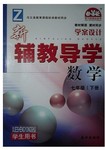题目内容
When I was about 12, I had an enemy, a girl who liked to point out my shortcomings(缺点). Week by week her list grew: I was very thin, I wasn’t a good student, I talked too much, I was too proud, and so on. I tried to hear all this as long as I could. At last, I became very angry. I ran to my father with tears in my eyes.
He listened to me quietly, and then he asked. “Are the things she says true or not? Janet, didn’t you ever wonder what you’re really like? Well, you now have that girl’s opinion. Go and make a list of everything she said and mark(标记) the points that are true. Pay no attention to the other things she said.”
I did as he told me. To my great surprise, I discovered that about half the things were true. Some of them I couldn’t change (like being very thin), but a good number I could — and suddenly I wanted to change. For the first time I go to fairly clear picture of myself.
I brought the list back to Daddy. He refused(拒绝) to take it. “That’s just for you,” he said. “You know better than anyone else the truth about yourself. But you have to learn to listen, not just close your ears in anger and feeling hurt. When something said about you is true, you’ll find it will be of help to you. Our world is full of people who think they know your duty. Don’t shut your ears. Listen to them all, but hear the truth and do what you know is the right thing to do.”
Daddy’s advice has returned to me at many important moments. In my life, I’ve never had a better piece of advice.
【小题1】What does “Week by week her list grew” mean in the first paragraph?
| A.As time went by, she discovered more shortcomings of mine. |
| B.She made a longer list of my shortcomings the next week. |
| C.She more and more disliked me as time went by. |
| D.She added one more shortcoming on the list every week. |
| A.To pay no attention to her “enemy’s” gossiping. |
| B.To keep away from her “enemy” at school. |
| C.To write down what the girl said and accept the truth. |
| D.To do whatever she wanted to as usual. |
| A.Because he wanted her daughter to perfect herself. |
| B.Because what the list said were not his shortcomings. |
| C.Because he thought the list didn’t belong to him. |
| D.Because he believed the list could be well kept by her. |
| A.Not an Enemy, But a Good Friend | B.The Best Advice I’ve Ever Had |
| C.My Father and I | D.My Childhood |
【小题1】A
【小题2】C
【小题3】A
【小题4】B
解析试题分析:
【小题1】推理题,由第一段的第二行I was very thin, I wasn’t a good student, I talked too much, I was too proud, and so on.可以知道随着时间的流逝,她发现作者的缺点越来越多,所以选A
【小题2】细节题,由第二段的最后一句Go and make a list of everything she said and mark(标记) the points that are true. Pay no attention to the other things she said.可以知道写下小女孩说的并且接受事实,所以选C
【小题3】推理题,由最后一段爸爸说的“You know better than anyone else the truth about yourself. But you have to learn to listen, not just close your ears in anger and feeling hurt. When something said about you is true, you’ll find it will be of help to you. Our world is full of people who think they know your duty. Don’t shut your ears. Listen to them all, but hear the truth and do what you know is the right thing to do.”可以知道他这样做是让作者更完美,所以选A
【小题4】推理题,由本文的主要意思“爸爸对自己的女儿说要敢于面对自己的缺点,这是作者一生最好的建议”,所以选B
考点:本文为一篇记叙文。
点评:本文讲述了做这场被一个女孩说他的缺点,那一天她哭着去找爸爸,爸爸让她所做的事是要敢于面对自己的缺点的故事,先通读全文,然后带着问题,再读全文,找出答题所需要的依据,完成阅读。本文主要考查推理题,要求学生有很强的推理分析能力。

 新辅教导学系列答案
新辅教导学系列答案 阳光同学一线名师全优好卷系列答案
阳光同学一线名师全优好卷系列答案完形(15%)
Albert Einstein said, “In the middle of every difficulty lies opportunity.” Once __41 __, such opportunities are like valuable diamonds hidden in the sand.
Several years ago, I spoke at a school about how we were surrounded by “___42___ ” if we could only recognize them. A man stopped by to see me, and I remembered him as somebody who had suffered through a(n) ___43___ divorce (离婚) and was examining what was most important to him. He took a small ___44___ out of his pocket. Here is what he said to me that day.
“I ___45___ on this stone when I was leaving church last Sunday. You had spoken about ___46___ opportunities—diamonds. I put the stone in my ___47___ to remind me to look for those “diamonds” that I need. I have been trying to sell my business . On Monday morning, a man w ho seemed interested in ___48___ some of my stock (股票) stopped by. I thought, ‘Here’s my diamond—don’t let it ___49___!’ I sold the entire stock to him by noon. Now my next diamond is to find a new ___50___ !”
ho seemed interested in ___48___ some of my stock (股票) stopped by. I thought, ‘Here’s my diamond—don’t let it ___49___!’ I sold the entire stock to him by noon. Now my next diamond is to find a new ___50___ !”
Not long afterward, he did find a new an d better job. From then on, he decided to keep his stone with him all the time as a ___51___ to look for “diamonds” as he dug through the ___52___ of life.
d better job. From then on, he decided to keep his stone with him all the time as a ___51___ to look for “diamonds” as he dug through the ___52___ of life.
Richard DeVos is right when he points out. “This is an exciting world. It is filled with opportunities. Great moments wait around every corner.” Those moments are diamonds that, ___53___ left unrecognized, will be forever lost.
Are you looking for “diamonds” every day? If not, you may ___54___ pass them by! Perhaps there is a diamond of opportunity hidden in the difficulty you’re ___55___ now.
| 【小题1】 |
|
| 【小题2】 |
|
| 【小题3】 |
|
| 【小题4】 |
|
| 【小题5】 |
|
| 【小题6】 |
|
| 【小题7】 |
|
| 【小题8】 |
|
| 【小题9】 |
|
| 【小题10】 |
|
| 【小题11】 |
|
| 【小题12】 |
|
| 【小题13】 |
|
| 【小题14】 |
|
| 【小题15】 |
|
完形填空 (共20小题;每小题1分,满分20分)
请认真阅读下面短文,从短文后各题所给的A、B、C、D四个选项中,选出最佳选项,并在答题卡上将该项涂黑。
We often talk about ourselves as if we have permanent genetic defects (缺陷) that can never be changed. “I’m impatient.” “I’m always behind.” “I always put things 31 !” You’ve surely heard them. Maybe you’ve used them to describe 32 .
These comments may come from stories about us that have been 33 for years—often from 34 childhood. These stories may have no 35 in fact. But they can set low expectations for us. As a child, my mother said to me, “Marshall, you have no mechanical skills, and you will never have any mechanical skills for the rest of your life.” How did these expectations 36 my development? I was never 37 to work on cars or be around 38 . When I was 18, I took the US Army’s Mechanical Aptitude Test. My scores were in the bottom for the entire nation!
Six years later, 39 , I was at California University, working on my doctor’s degree. One of my professors, Dr. Bob Tannbaum, asked me to write down things I did well and things I couldn’t do. On the positive side, I 40 down, “research, writing, analysis, and speaking.” On the 41 side, I wrote, “I have no mechanical skills.”
Bob asked me how I knew I had no mechanical skills. I explained my life 42 and told him about my 43 performance on the Army test. Bob then asked, “ 44 is it that you can solve 45 mathematical problems, but you can’t solve simple mechanical problems?”
Suddenly I realized that I didn’t 46 from some sort of genetic defect. I was just living out expectations that I had chosen to 47 . At that point, it wasn’t just my family and friends who had been 48 my belief that I was mechanically hopeless. And it wasn’t just the Army test, either. I was the one who kept telling myself, “You can’t do this!” I realized that as long as I kept saying that, it was going to remain true. 49 , if we don’t treat ourselves as if we have incurable genetic defects, we can do well in almost 50 we choose.
| 【小题1】 |
|
| 【小题2】 |
|
| 【小题3】 |
|
| 【小题4】 |
|
| 【小题5】 |
|
| 【小题6】 |
|
| 【小题7】 |
|
| 【小题8】 |
|
| 【小题9】 |
|
| 【小题10】 |
|
| 【小题11】 |
|
| 【小题12】 |
|
| 【小题13】 |
|
| 【小题14】 |
|
| 【小题15】 |
|
| 【小题16】 |
|
| 【小题17】 |
|
| 【小题18】 |
|
| 【小题19】 |
|
| 【小题20】 |
|
 reaking
reaking